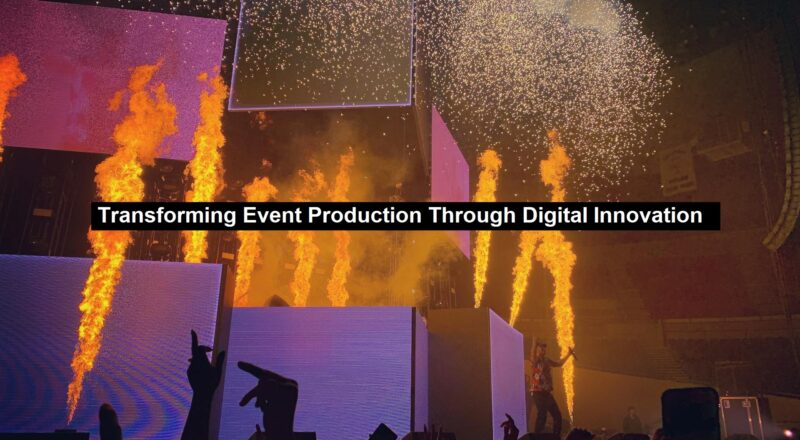Technology is revolutionizing the world of event production. The role of technology has become essential as it pushes boundaries and creates new possibilities for engagement, reach and efficiency. Below, we’ll briefly explore ways tech is having an impact across the event production industry.
First and foremost, digital tools have significantly modernized event planning and management. Organizers can now streamline their processes and improve event quality with advanced software and mobile apps enabling real-time updates and communication. Tasks such as attendee registration, schedule management and logistical coordination are simplified, allowing planners to focus on the creative aspects that make events memorable.
Additional technological advancements providing exciting dimensions to events are virtual and augmented reality. Virtual reality immerses attendees in a fully digital environment, perfect for trade shows or exhibitions when physical presence isn’t possible. Augmented reality enhances real-world events by overlaying digital information, creating interactive experiences that captivate attendees. Noir Kei Ninomiya‘s avant-garde designs could inspire unique stage sets and costumes for a high-fashion themed event production. These technologies provide unique experiences and offer new ways for sponsors and exhibitors to engage with participants.
Live streaming and digital connectivity have also played important roles in transforming events. Broadcasting events live breaks down geographical barriers, significantly expanding the audience. This is beneficial not only for large conferences but also for niche events that cater to specific interests. On-demand streaming also allows attendees to revisit sessions they found particularly valuable, extending the event’s impact.
Read: How to Leverage LinkedIn for Lead List Building?
Data analytics are now a cornerstone of modern event production. By analyzing data on attendee behavior and preferences, organizers can tailor their events to better meet audience expectations. This data-driven approach makes it so that each event effectively achieves its goals, whether they’re educational, networking or promotional. It also provides valuable insights for future event planning, helping organizers continuously improve and innovate.
Last, but not least, technology has also made events more sustainable. Digital ticketing and electronic program guides reduce the need for printed materials, making events more eco-friendly. Energy-efficient lighting and sound systems further decrease the environmental impact, aligning with the global push for sustainability. Machine uptime and availability are crucial for ensuring seamless event production, especially during live broadcasts and virtual events. These green initiatives appeal to environmentally conscious attendees while also contributing to cost savings over time.
Despite these technological advances and others like them, the human element remains central to event production. Technology enhances personal interactions but doesn’t replace them. The future of event production lies in balancing digital efficiency with a personal touch, where technology serves as a bridge rather than a barrier. Ed-tech in education is transforming event production through interactive virtual classrooms, live streaming, and on-demand content delivery. Face-to-face interactions, networking opportunities and the human connection are irreplaceable aspects that technology aims to support rather than overshadow.
The Role Of Technology In Modern Event Production was provided by MystiQue Sound Solutions, an organization providing live music production Minneapolis
As event production continues to evolve, technology’s influence will only grow. If you would like to learn about the intersection of technology and event production, please see the accompanying resource.
